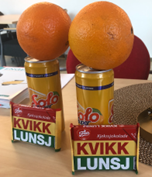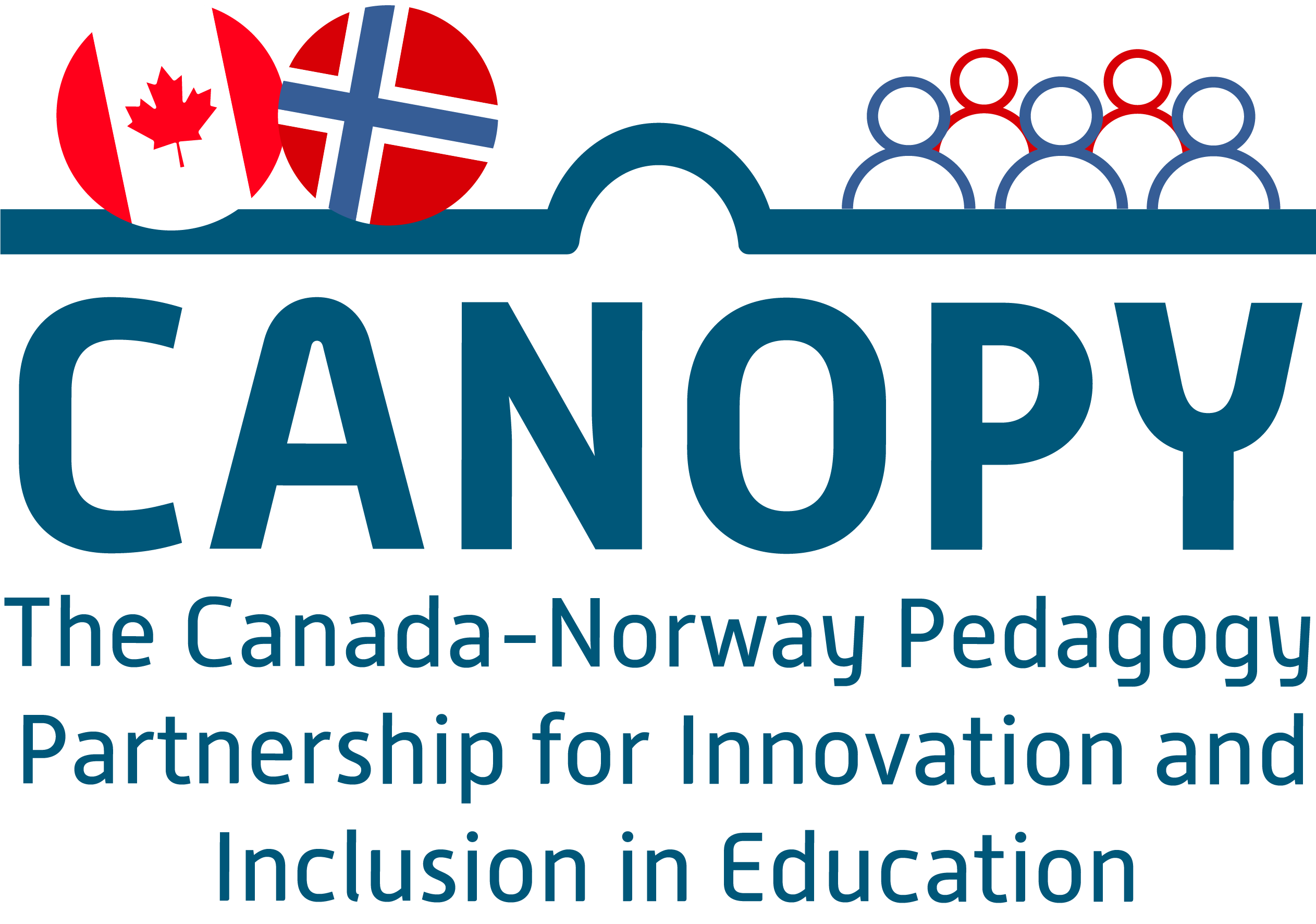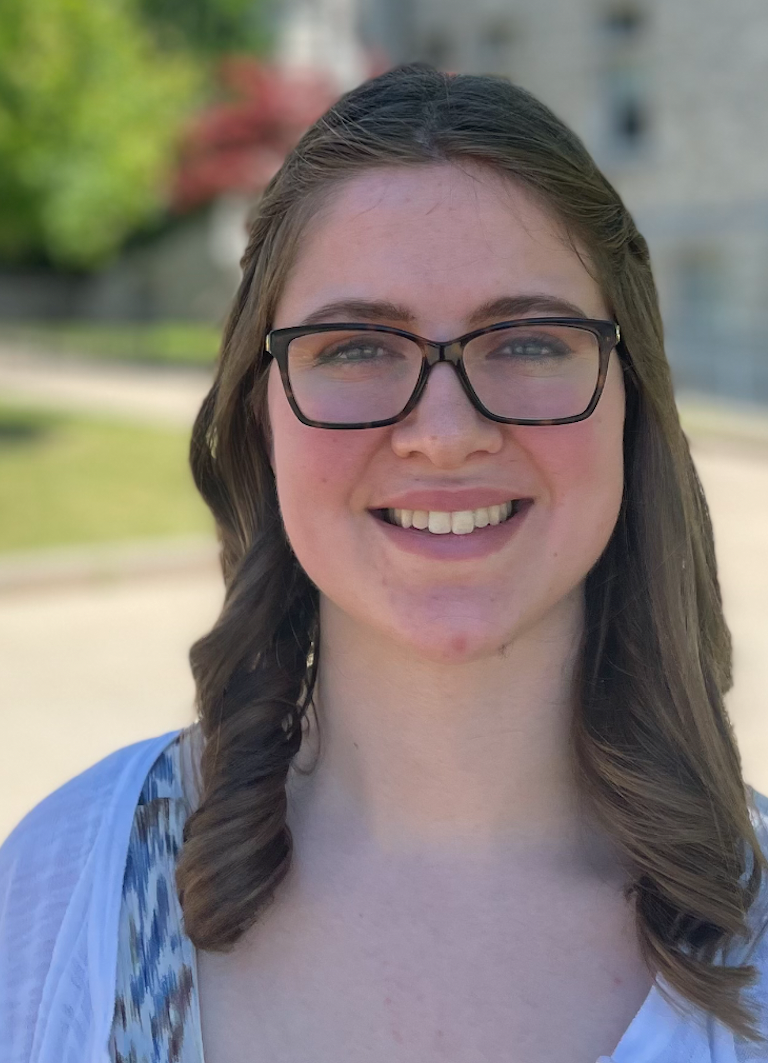March 2023 – International Alternative Practicum in a Bodø Middle School
Hello everyone!
The 2023 International Alternative Placement (IAP) in Bodø was an exhilarating experience for both of us. Not only was it an excellent learning opportunity — both for teaching as well as life in general — it was also a great way to develop independence and experience a new culture!
As a settler teacher candidate interested in merging my passions for learning, travel, and participating in decolonizing education, having the CANOPY program’s support in working with Norwegian and Sámi learners was an amazing opportunity!
– Allison Headrick
Our focus/theme for this IAP was on Indigenous Studies, Diversity, and Inclusion. On top of learning more about these important and extremely relevant topics, CANOPY also made sure to support us in learning more in our teachables as well. My focus track at Queen’s is Arts and Learning, and CANOPY and Nord University tried their
best to ensure that I also got a chance to experience arts education in Norway as well! By participating in this IAP placement in Norway, I was able to learn more about different teaching practices in other parts of the world which helped me grow as an educator. I believe that there is much to learn from the varied teaching practices we observed in Bodø this year.
– Madalina Raduta
Now, here are a collection of takeaways and helpful tips we wished we knew before taking the leap with the CANOPY project:
 To start, get ready for community! Norwegian culture is a bit more casual with respect to dress and how students address staff while on practicum. In Norway, it is common for students to address teaching staff by their first name and it is more acceptable than in Canada to wear jeans and sweaters instead of dress shirts or pants while on practicum. Looking back, we both agreed we would bring fewer formal clothing items to lighten our packing loads when travelling to and from Norway. However, due to the chilly March weather, we still recommend that you bring some of the following items:
To start, get ready for community! Norwegian culture is a bit more casual with respect to dress and how students address staff while on practicum. In Norway, it is common for students to address teaching staff by their first name and it is more acceptable than in Canada to wear jeans and sweaters instead of dress shirts or pants while on practicum. Looking back, we both agreed we would bring fewer formal clothing items to lighten our packing loads when travelling to and from Norway. However, due to the chilly March weather, we still recommend that you bring some of the following items:
- Sweaters and gloves etc. Bodø is a very windy city, more so than Kingston, so having clothes to layer and bundle up is crucial!
- A rain jacket – due to the wind, umbrellas are more of a chore than helpful, so good weatherproof clothing is best
- ICE CLEATS or some boots with good grip are a must! Everyone in Bodø has some, as the roads in March are still pretty icey. Since it snows so much, the city uses more gravel than salt and the roads remain icey for some time.
On that note, YR is an excellent and free Norwegian weather app for locally accurate predictions. Another great app is the free My Aurora Forecast & Alerts, with the purple app icon. This is the best option to support all your northern lights viewing dreams!

Next, the relationship — and community — building in Norway is wonderful to see: we participated in a waffle day, Easter-related festivities, and were positively influenced by the community building events in the school throughout our CANOPY experience. Oranges and Norway-specific chocolate are an Easter tradition in Norway!

A few other helpful points to keep in mind as you prepare to teach in Norway: the shorter (45-minute) instructional periods and slight shifts in language we found supported a successful practicum. Allison found that there were slight differences regarding verbal directness in Norway; for example, while in Canada she might start class by indicating “I invite you to open your books”, in Norway, after wishing students a good morning before they sit, it is “Please get out your books” and the class is good to get started.
Our concluding tips
We encourage you to research the level of cash-driven versus card-driven transaction practices in the areas you travel. Norway is a highly cashless country and Allison ended up bringing more Norwegian cash than she needed. Also, make sure you have a way of receiving texts while you are in Norway, whether it is through your regular phone plan or getting a new SIM card from Norway. There is plenty of WiFi available wherever you go in Bodø, however, and here’s the catch, you need to receive a code through text in order to connect to said WiFi! We encountered this problem (almost every day) while trying to connect to the school’s WiFi.
Lastly, ask questions about assessment differences and programming to support newcomers in Norway. One of our most impactful experiences with CANOPY was having the opportunity to observe how newcomers to Norway receive support during the school day, as to our knowledge it is a different practice than in Canada.
– Allison and Madalina (2023 CANOPY IAP Participants)

